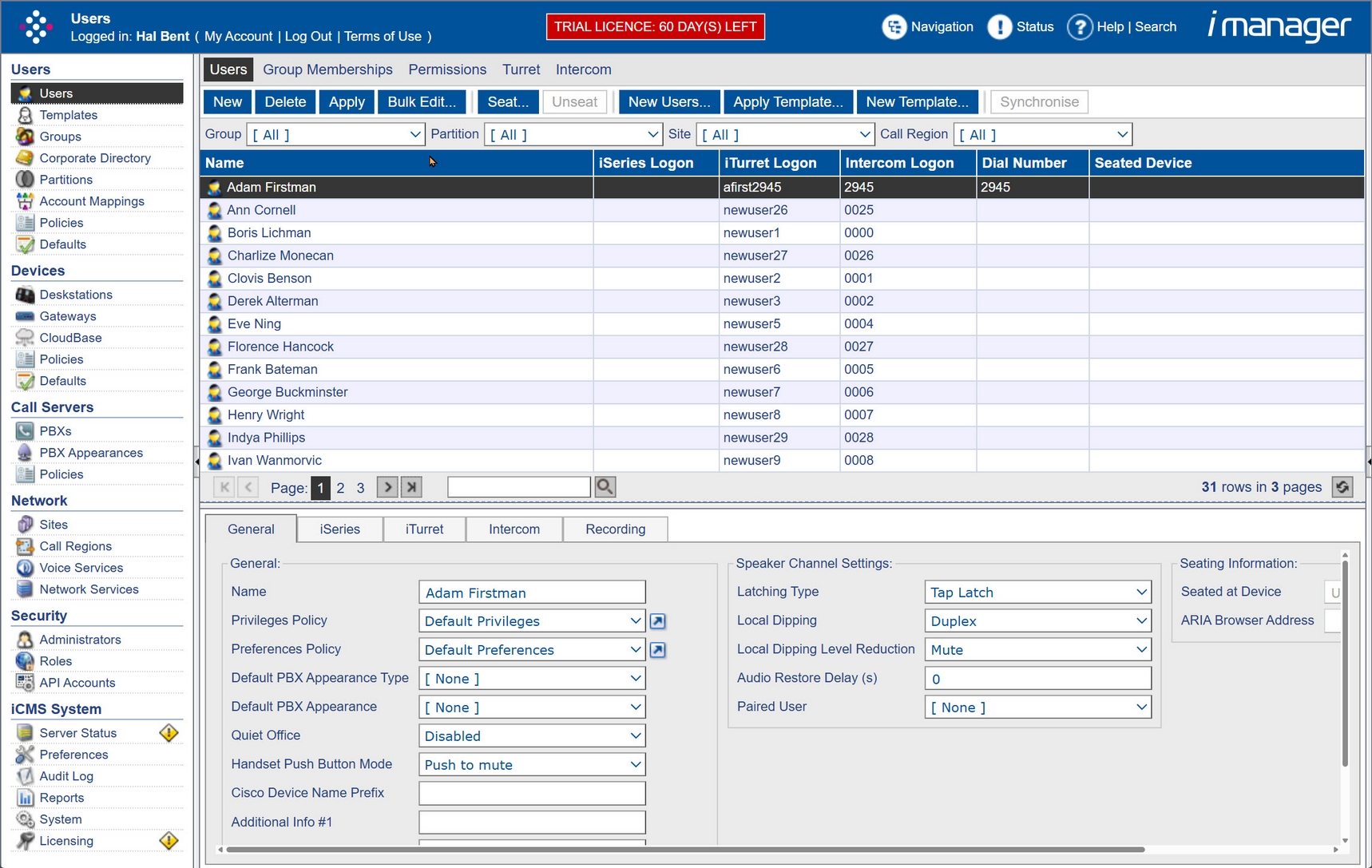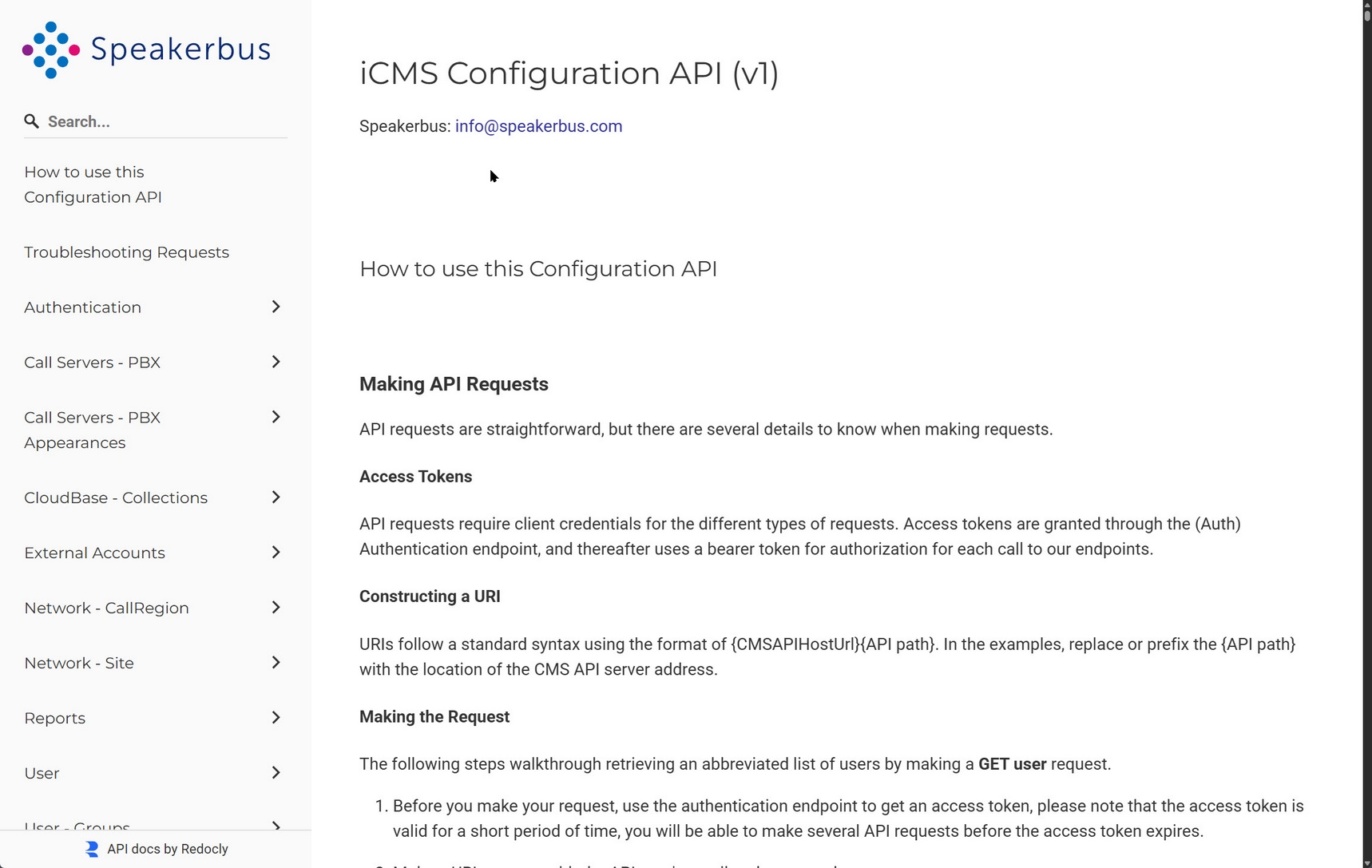Case Study: iCMS iManager
A Modern Platform for Mission-Critical Voice System Management
Introduction
As a key developer on the iCMS platform, I played a significant role in its strategic modernization by re-architecting its core services from a legacy .NET Framework to a modern, cross-platform .NET stack. The project's capstone achievement was the delivery of a new Configuration API, transforming the platform from a closed system into an extensible, customer-centric solution.
The Business Challenge: Modernization for Efficiency and Control
For clients, iCMS is the central nervous system for their mission-critical voice systems. While Speakerbus engineers handle initial deployment, the client's own IT teams manage the high-stakes daily administration. This creates a significant operational challenge involving high-frequency tasks (user onboarding, number changes), complex call routing, and a constant risk that a simple manual misconfiguration could lead to a significant service disruption.
The Old Way: Technical Debt and High TCO
The legacy iManager platform was functional but built on an architecture that created barriers to growth and increased the total cost of ownership (TCO) for customers. A significant amount of business logic was locked away in SQL Stored Procedures, making the system difficult to maintain. Crucially, the system was restricted to a Windows Server environment, incurring significant OS licensing costs and making it impossible to integrate into modern, automated IT workflows.
The Solution: An API-First Central Management Platform
We re-architected iCMS as a flexible, service-oriented platform built on modern .NET. The solution's foundation is a suite of specialized microservices that handle discrete business domains while ensuring system-wide consistency through a shared class library. This architecture provides a robust and scalable foundation for all configuration and management.
The new system is a comprehensive model of the entire communications ecosystem, comprised of several core service components:
- Communication Service: A .NET 4.8 service dedicated to handling all real-time TCP/IP socket communication from hardware and virtual devices regarding their configuration.
- Integration Service: A .NET 4.8 API host that communicates directly with Qorus devices like the iD808, iD704, and the virtual endpoints for ARIA and AYRE.
- Maintenance & Scheduling Services: Background services (.NET 4.8 and .NET 3.1) that manage system-level tasks like upgrades, backups, and timed events.
- Centralized Logic: A .NET Standard shared class library that contains all business rules for devices, users, and connections, ensuring strict consistency across the entire platform.


Empowering Customers with the Configuration API
The crowning feature of the new architecture is the modern .NET 8 Configuration API. This transforms iCMS from a purely GUI-driven tool into an open, extensible platform. The API exposes core management functions, allowing customers to automate tasks that were previously manual. This enables them to script and integrate iCMS administration directly into their own IT processes, such as:
- Step 1: Integration. A customer's internal HR system or ITSM platform (like ServiceNow) makes a secure API call to iCMS when a new employee joins the trading floor.
- Step 2: Automated Provisioning. The API receives the request and automatically creates the new user, assigns them to the correct device profiles, configures their specific telephony lines, and enables their required features without any manual intervention from an IT admin.
- Step 3: Validation and Activation. The user is created according to the strict business rules in the shared library, ensuring a valid configuration. The API returns a success message to the calling system, and the trader's turret is ready for use.
Business Impact and Conclusion
The most significant impact of the iCMS modernization was the dramatic acceleration of customer workflows and a major boost in internal development agility. By replacing a closed, manual process with a guided, API-driven system, the new iCMS platform streamlines administration and eliminates risk for customers. Internally, by removing technical debt, the Speakerbus team can now add new features and fix bugs far more rapidly. This strategic modernization was pivotal in reducing operational overhead for customers and positioning iCMS as a flexible, future-ready platform.
Technology Stack
- Backend API: .NET 8
- Backend Services: .NET 4.8, .NET 3.1, .NET 8
- Shared Logic: .NET Standard
- Frontend: WebForms, Swagger ReDoc
- Database: SQL Server